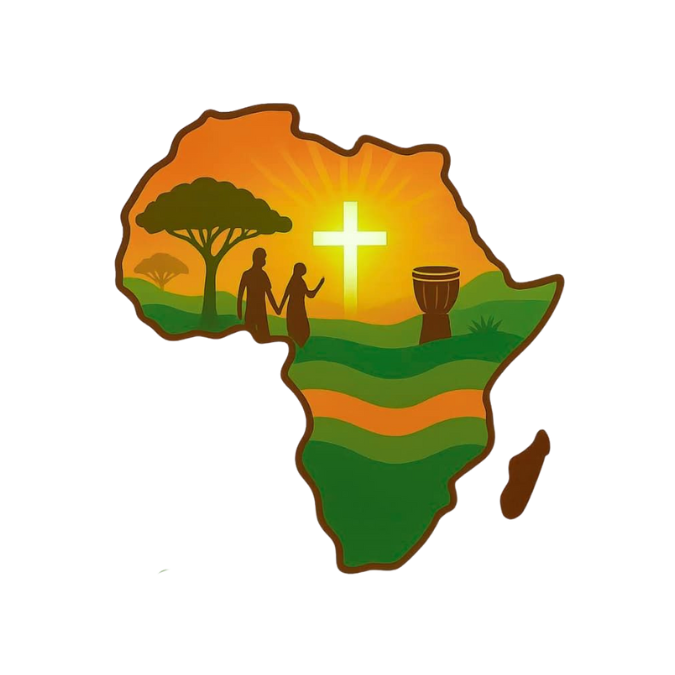
A Call to Discernment
In this month’s edition of Young Faith, New Horizons, we explore how media literacy is becoming an essential tool for young African Catholics. Media literacy not only equips them to shield themselves from digital deception but also to actively promote truth, justice, and evangelisation in an increasingly complex online world.
In fact, as artificial intelligence, misinformation, and digital activism reshape the media landscape, young people are increasingly exposed to misleading content, particularly on matters of faith and doctrine. Social media platforms like Facebook and TikTok have amplified distorted theological narratives, from prosperity gospel promises to anti-scientific views on sexuality, creating confusion and spiritual conflict among young people. No doubt, such digital falsehoods pose serious risks to young people who are the digital protagonists: they can undermine trust in the Church, fracture religious communities, and mislead the faithful.
In contexts where misinformation can fuel violence and distort religious teachings, media literacy becomes a necessity and a tool of hope, peace, and empowerment for young people. For them, media literacy is a means to reclaim their digital spaces, not just as consumers, but also as creators and truth-tellers. However, without critical media skills, they risk becoming passive content consumers rather than discerning participants in the digital public square. Of course, media literacy is not merely about fact-checking. It is about cultivating intellectual humility, theological clarity, and ethical responsibility. It is about asking the right questions: Who is speaking? What is their intent? How does this align with Gospel values? Etc.
Building a Digitally Discerning Generation
Across Africa, the Catholic Church is taking a proactive stance in response to the challenge of media literacy. For example, media apostolates, seminaries, and dioceses are initiating programs to equip young people with the skills they need to navigate the complexity of the digital world.
The PACTPAN’s Africa Digital Youth Faith Influencers (ADYFI) programme is a standout example. This seven-module certificate programme, offered in collaboration with universities in Nigeria, Uganda, Zambia, Kenya, and Côte d’Ivoire, teaches young Catholics about digital evangelisation, Catholic social teaching, and ethical media engagement. Participants learn how to create content and critically evaluate narratives, challenge misinformation, and build online communities rooted in truth and charity.
Bishop Godfrey Onah of Nsukka Diocese in Nigeria has advocated for digital formation, calling the young people to “reevangelise the digital peripheries”. His message is clear: the Church must not retreat from the digital world; it must transform it. Also, at the Pastoral and Communication Studies department of the Catholic Institute of West Africa, Sr Titilayo Aduloju, SSMA, teaches media and information literacy (MIL) to students at all levels with the intent that they not only become media literate themselves but also that they become agents of propagating the tenets of MIL to other students and young people.
In Kenya, youth leaders like Claire Kiragu have emphasised the importance of audience awareness and theological accuracy in social media evangelisation. During the Gen Z-led protests against the Finance Bill, Catholic youth used platforms like TikTok and X (formerly Twitter) to debunk false claims, clarify Church teachings, and mobilise peaceful advocacy.
In South Africa, Catholic youth groups have partnered with civil society organisations to run WhatsApp-based fact-checking hubs, targeting viral misinformation around elections, vaccines, and religious controversies. Moreover, Catholic media houses such as Radio Maria Uganda, Lumen Christi TV Nigeria, and CanaanTV Kenya are integrating media literacy into their youth programming, offering workshops on detecting fake news, ethical storytelling, and the spiritual dimensions of digital life.
Youth ministries in Ghana, Rwanda, and Cameroon are launching campaigns on digital virtue, emphasising respect, charity, and humility in online interactions. These include pledges to avoid gossip, resist clickbait, and prioritise constructive dialogue. In parish catechesis, media literacy is being linked to moral theology. Youth are encouraged to reflect on their digital habits: Do my posts reflect my faith? Am I building up or tearing down? Am I using my voice to heal or to harm?
The Path Forward
In an era where algorithms shape belief and virality often trumps veracity, the Church must form young people who are not only tech-savvy but also spiritually wise. Media literacy is not a luxury; it is a form of discipleship, a way to live out our faith in a digital world. Therefore, young African Catholics should heed this call. They must become digital missionaries, truth-tellers, and bridge-builders. They must be ready to reclaim the digital space, not with fear, but with faith, courage, and a passion for truth. As we journey through this Information Age, we should remember that truth is not just a fact; it is a person. And in Christ, we find the courage to speak, share, and live that truth boldly



